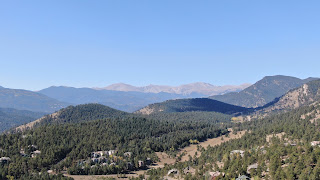Colorado Water Rights
Water Rights and Wells in Colorado Real Estate
When buying or selling property in Colorado — especially in rural or mountainous regions — understanding water rights and well systems is essential. These components are not just add-ons; they can significantly affect property value, livability, and legal responsibilities. Whether you’re a real estate agent advising clients or a prospective buyer navigating Colorado’s unique terrain, knowing the basics of wells and water rights is critical to making informed decisions.
Colorado’s Unique Water Supply Landscape
In many mountainous parts of Colorado, municipal water access is limited or unavailable. In these areas, homes rely on private wells, springs, and sometimes natural streams for water. That means water sources aren’t just a utility—they're a vital part of the property’s infrastructure and value.
Many properties include private wells drawing from underground aquifers. Others have legal access to nearby natural springs or creeks. Each source comes with its own regulations and maintenance needs, and understanding the distinctions can make or break a sale.
Maintaining Private Wells: What Buyers and Agents Need to Know
A private well requires regular upkeep to ensure safe, reliable water for daily use. For buyers considering a property with a private well, real estate agents should be ready to explain:
- Pump system functionality
- Well casing condition
- Expected yield and depth
- Water storage (if applicable)
Annual inspections and well maintenance services are highly recommended. Encouraging clients to invest in professional well inspections during the homebuying process is a smart move that could prevent future issues.
Water Quality Testing Is a Must
Water drawn from a private well must be tested regularly for safety. This is especially important in areas with mining history, agricultural runoff, or geological variability. As an agent, recommend a certified lab and educate buyers on testing for:
- Bacteria (like E. coli)
- Nitrates
- Heavy metals
- Hardness levels
- pH balance
In many Colorado counties, water testing is a routine part of property due diligence—and buyers will expect their agents to know the local rules.
Types of Wells in Colorado
Colorado recognizes several types of private wells, each with specific regulations and permitted uses. Understanding these classifications is crucial for accurately representing a property.
1. Domestic Wells
Used for everyday residential needs such as drinking, bathing, and landscaping. These wells often include restrictions on watering livestock or irrigation, so buyers with agricultural goals may need additional permits.
2. Agricultural Wells
Designed to support farming operations. These wells typically have broader usage allowances, but they require specific permits from the state. Buyers should verify if the current water use matches legal entitlements.
3. Livestock Wells
These wells provide water exclusively for animals and can be found on rural or ranch properties. Agents should confirm the well’s legal classification and permitted usage before advising clients.
4. Horse Wells
Similar to livestock wells but tailored for equestrian properties. Buyers should be aware that equestrian use still falls under agricultural permitting, and volume restrictions may apply.
Water Rights in Colorado: “First in Time, First in Right”
Colorado operates under the doctrine of prior appropriation—meaning the earliest user of a water source has senior rights. This system can complicate real estate transactions, especially during drought conditions.
As a real estate professional:
- Always verify whether the property has deeded water rights.
- Determine if water rights are included with the sale or sold separately.
- Review any irrigation ditches or shared access rights tied to the land.
Buyers should be advised to consult a water attorney when dealing with high-value or complex water rights transactions.
Buying and Selling Water Rights: It’s Not Always Straightforward
Water rights in Colorado are often legally distinct from the land itself. That means a buyer can purchase a property and not automatically own the water rights associated with it. In some cases, those rights may have been sold decades earlier.
Agents should work with title companies, local water boards, and attorneys to confirm:
- The type and extent of water rights tied to the property
- Whether those rights are senior or junior in priority
- If the water rights are transferable, and under what conditions
Key Takeaways for Agents and Buyers
- Wells are a primary water source in many rural Colorado properties—understand their maintenance, yield, and legal use.
- Water rights are legally binding and separate from land in many cases. Always verify them during the sale process.
- Water quality testing is critical for private well safety.
- Buyers should conduct due diligence and consult legal professionals before completing any transaction involving water rights.
Water Is Wealth in Colorado
Whether you're selling a mountain cabin or helping a buyer invest in ranch land, water rights and wells are not to be overlooked. They are foundational to the function, value, and legality of many properties in Colorado. A knowledgeable approach to these elements will help agents serve their clients better and ensure smoother, more transparent transactions.
For any real estate professional operating in Colorado, becoming fluent in water rights and well regulations isn’t just a bonus—it’s a necessity.
Note: This guide is intended for supplementary knowledge and should not replace professional legal advice on water rights and wells in Colorado. https://agentsgather.com/home-water-wells-in-colorado/


Comments
Post a Comment